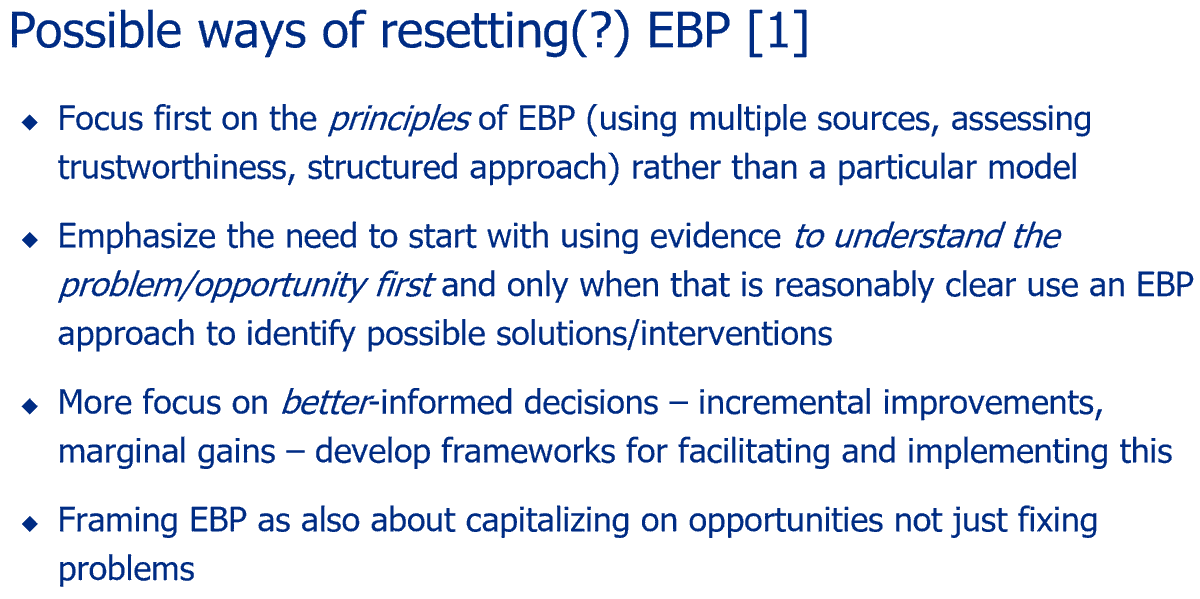
THREAD
Preparing for the @BirkbeckBEI @bbk_orgpsych Alec Rodger Memorial Lecture gave me the chance to reflect on 25 years of discussing evidence-based practice in #HR, #Management and #work #psychology.
Here's 18 things I think I got wrong in trying to promote the idea.
Preparing for the @BirkbeckBEI @bbk_orgpsych Alec Rodger Memorial Lecture gave me the chance to reflect on 25 years of discussing evidence-based practice in #HR, #Management and #work #psychology.
Here's 18 things I think I got wrong in trying to promote the idea.
1. Focusing way too much on ‘the science’ (systematic reviews, pushing research) – important but it’s just one source of evidence and awareness doesn’t seem to change behaviour
2. Not acknowledging that universities and academics are, in general, part of the problem of low adoption not part of the solution
3. Framing it as part of the (tedious and misplaced) practitioner/academic divide/gap debate
4. Implying that scientists are somehow better or purer practitioners compared to managers when they are not (e.g., Questionable Research Practices)
5. Making EBP sound like a technocratic solution which can only be undertaken by experts, nerds, wonks, brainiacs, elites, etc
6. Being too myth-bustery – tends to alienate rather than engage – crucial to challenge dodgy stuff but needs to be much more sophisticated
7. Not sufficiently appreciating how the work context pulls practitioners away from EBP. In other words, not appreciating managers’ constraints and incentives
8. Implying practitioners are making mistakes or are silly or odd or not thinking straight
9. Sounding (and being) smug and preachy – “you really should do this it’s good for you”
10. Not being sufficiently clear about when an EBP approach makes more or less sense (e.g., based on problem importance)
11. Not engaging effectively with reasonable objections to EBP (e.g., that it’s time-consuming)
12. Insufficient focus on the ‘diagnosis’ part of EBP and too much focus on using EBP to find a solution - the “what works?” approach only works with clearly understood/diagnosed problems
13. Positioning EBP as something individuals or teams can do when it requires structural and systemic thinking and action
14. Not emphasizing that the quality of decision-making is about the process not the outcome (bit like saying an experiment was good because it got the result the researchers wanted)
15. Failing to clarify EBP is not a one-off thing but needs to be part of a longer-term process of individual, group and organizational learning and development
16. Not starting from where practitioners are now and what they can realistically do now
17. Positioning EBP as about making really very well-informed decisions rather than better-informed decisions
18. Focusing on the teeny-tiny incy-wincy proportion of practitioners who want and are able to try EBP – sure it’s not for everyone but it’s also not for almost no-one
• • •
Missing some Tweet in this thread? You can try to
force a refresh






